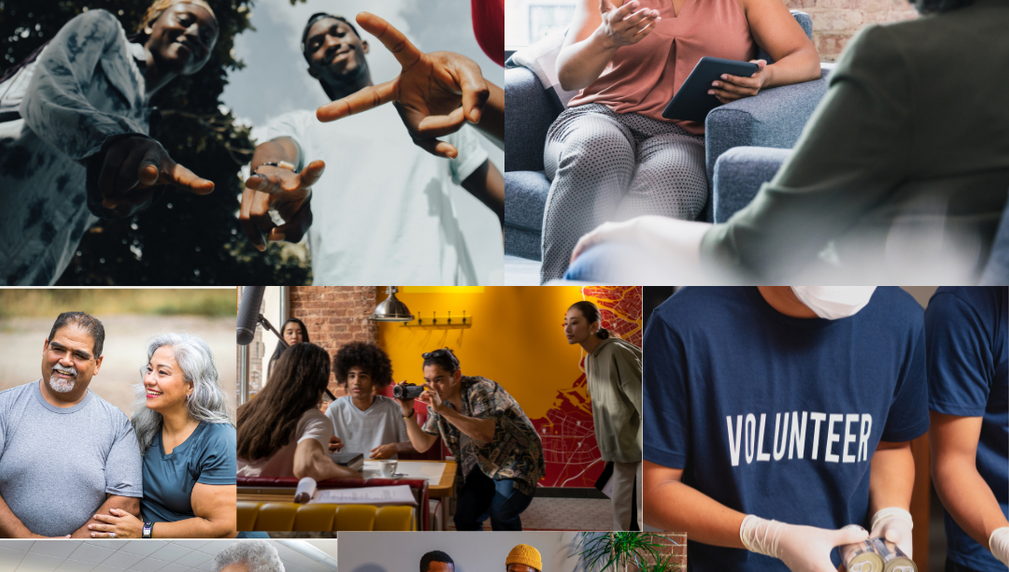Mental Health Recovery for the Marginalized
Our program offers community members free or low-cost Intensive Outpatient Recovery programs (3 months, 6 months, or 9 months in duration) to address mental health suffering, emotional health suffering, and the disease of alcoholism. Additionally, our center will host regular 12-step fellowship meetings open to the community, free professional workshops, and youth wellness and academic workshops focused on realizing and nurturing professional passions, bridging the gap for Black, Latino, LGBTQ+, and People of Color community members.

What is the primary issue area that your application will impact?
Health Care Access
In which areas of Los Angeles will you be directly working?
San Fernando Valley
In what stage of innovation is this project, program, or initiative?
Expand existing project, program, or initiative
What is your understanding of the issue that you are seeking to address?
Substance abuse and mental health suffering consistently remain two of America's most pressing public health concerns, and racial inequities are glaring in treatments for both. Our programs address the inequalities in Recovery fellowships today. The majority of self-help fellowships offering treatment for these issues historically consist of white people, and a fundamental aspect of this type of treatment's success is people relating to one another through shared experiences. Our own team members and executives have first-hand experience of being rejected by these fellowships for sharing from the Black and LGBTQ+ perspectives, as their lived experiences coming from marginalized communities are significant factors leading to their substance abuse and mental health suffering. The solution is culturally specific treatment to break down the barriers of the mind and soul caused by mental health suffering, substance abuse, and systemic racism. Then, an individual's potential is limitless.
Describe the project, program, or initiative this grant will support to address the issue.
Our program will offer community members free or low-cost culturally specific Intensive Outpatient Recovery programs (3 months, 6 months, or 9 months in duration) to address mental health suffering, emotional health suffering, and the disease of alcoholism. Additionally, our center will host regular 12-step fellowship meetings open to the community, free professional workshops, and youth wellness and academic workshops focused on realizing and nurturing professional passions. Within the year, participants will have addressed and solved their underlying mental and emotional health problems, recovered from their symptomatic suffering, and finally have experienced the professional services and resources needed to improve their overall quality of life. Our programs will reduce unemployment within participating communities, decrease local crime rates as sobriety and recovery increase, and reduce poverty as individuals receive the training, resources, services, and opportunity needed to thrive in the workforce. Most importantly, our main goal is to be an established and self-supporting center by the end of the 1-year period. Through soliciting donations and contracting with health insurance companies to create our own revenue stream, we will be able to continuously provide free or low-cost treatment and services to those who would normally have to go without.
Describe how Los Angeles County will be different if your work is successful.
In 1-year's time, it is our goal to provide (3) 3-month outpatient program cycles, (2) 6-month cycles, and (1) 9-month cycle serving approximately 100 community members. Additionally, our goal is to ensure another 300-400 community members directly benefit from utilizing the various services provided by our center in the first year. Once implemented within a community, this type of recovery treatment will multiply. Discharged participants often spearhead their own recovery meetings to show others still suffering what worked for them. This is the true reach of the program; it grows exponentially over time and has limitless impact. Our long term vision for Los Angeles County is to see our self-sustaining recovery treatment fellowships spread throughout marginalized neighborhoods and communities. We also hope to consult with existing treatment centers to help implement our programs and ensure the racial inequities existing in their programs are addressed and demolished.
What evidence do you have that this project, program, or initiative is or will be successful, and how will you define and measure success?
We will be measuring our program's impact in multiple ways. Firstly, we keep records of all of our outpatient participants and their progress throughout their program. One aspect of our outpatient programs are "check-ins" with those that have completed a program. These follow-ups help us measure each participant's success and how we can continue helping them if needed. Our participants eventually become "alumni" who help new participants through our fellowship meetings. Meaning, our participants who complete outpatient programs continue to remain a part of our recovery community which gives us perspective on our impact as our community grows. We will also keep records of all community members who seek any of our community services in order to ensure we are prioritizing the services most requested by our members. We will also keep track of all fellowship groups that stem from our participants which will provide perspective into the number of indirect people impacted by our program.
Approximately how many people will be impacted by this project, program, or initiative?
Direct Impact: 450
Indirect Impact: 4,000